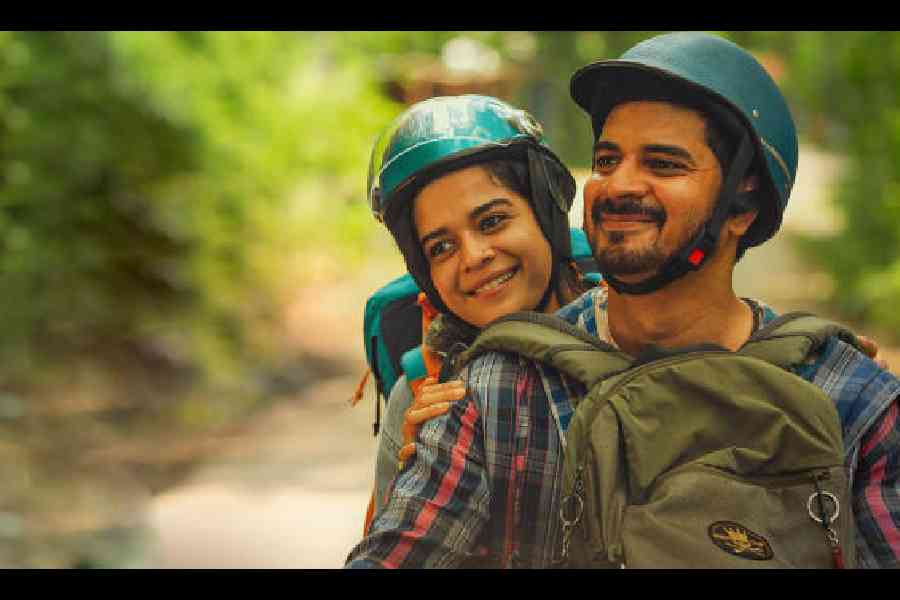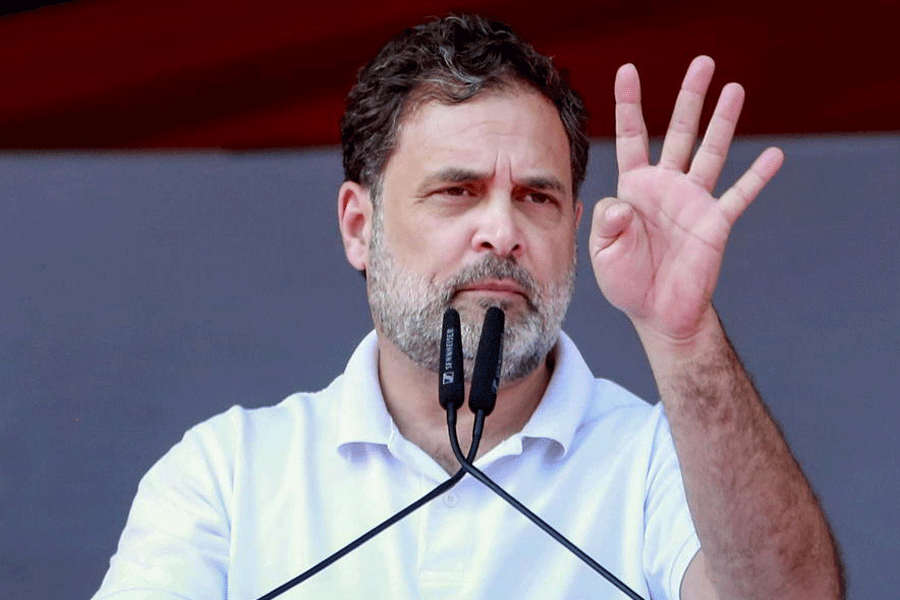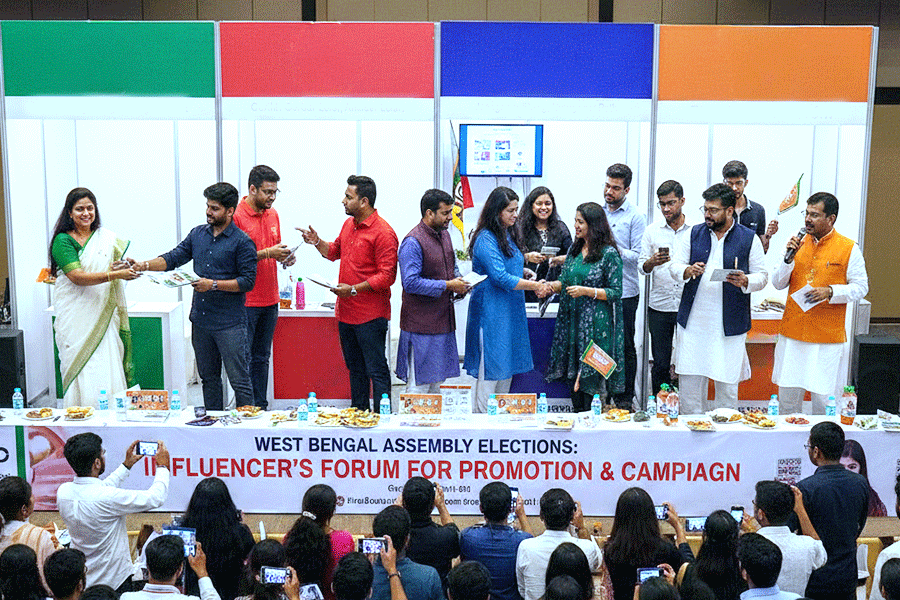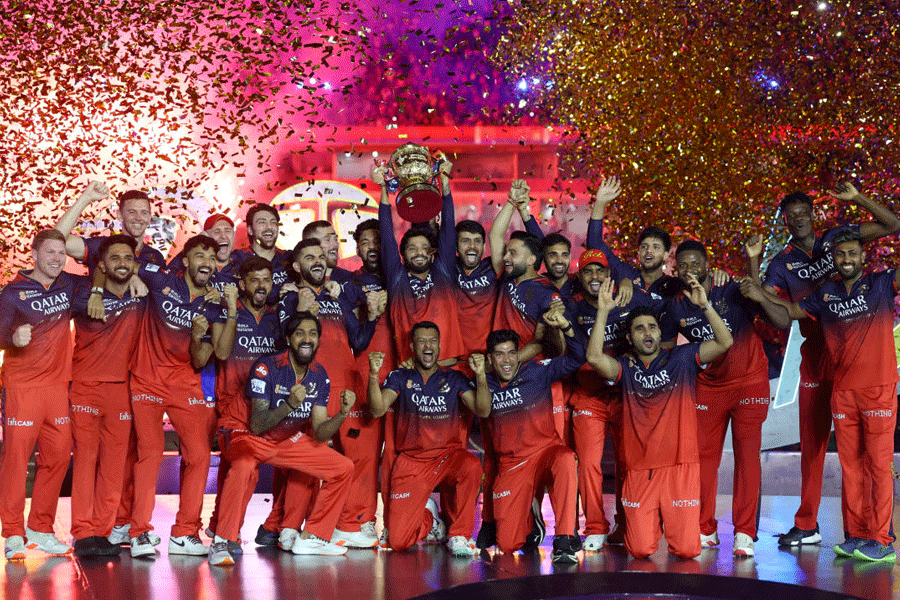Ram-Leela to Animal, Bajirao Mastani to Kalki 2898 AD, as lyricists and screenplay writers, Siddharth Singh and Garima Wahal, known mononymously as Siddharth-Garima, have an eclectic body of work under their belt. Their latest directorial venture, Saale Aashiq, has however, ventured into troubled waters. With its theme of honour killing, the Tahir Raj Bhasin-Mithila Palkar starrer was denied a release in theatres. No streaming platform picked it up, deeming it too controversial. The film finally released directly on TV (Sony MAX). Optimistic that Saale Aashiq will eventually find its audience, Siddharth-Garima spoke to t2.
Though meant for a theatrical release, Saale Aashiq released directly on TV. No streaming platform wanted to pick it up for a direct-to-OTT release. What’s the story behind that?
Garima: This is a very different take on honour killing. We were expecting some extreme reactions, which have happened, but there are also some people who have taken it as a revolutionary sort of movement. We have been getting some lovely messages. At the same time, there are some people who do have a little bit of a problem with the film because it does challenge a certain kind of order, a certain kind of mindset. Honour killing is such a controversial subject. There is a very powerful message within the film. The love story will tug at your heart and it is something that you will take home with you.
When we were researching for the film, it was shocking to know that our legal system doesn’t have laws against honour killing. First of all, this term is only wrong. Why should it be called honour killing? Our film, at the end, makes that statement... whether they are doing it for ‘honour’ or whatever, nobody has the right to kill anyone.
We knew right from the beginning that we were challenging some societal maladies. And it is not going to be an easy path to tread. Right from the inception of this idea to when we were pitching it to our producers, to casting it, to making it, and now finally when it has gone to the audience, the reaction has been pretty much what we thought it would be. In almost all films related to honour killing, the lovers die at the end. But we wanted to ensure that our lovers live and that they bring about a change.
Releasing it on TV must have been your last resort. We keep saying that our audiences have evolved, but can we say the same about the exhibitors and distributors in this country?
Garima: The audience would want to lap up something like this. But right from the beginning, the producers themselves were not very confident about bringing out stuff like this.Siddharth: The producers lacked conviction. But if a film is controversial, then you have to stand by it. Otherwise, don’t make the film, don’t commission it. But if you have made a film like this, then you better stand by it and release it the way it is supposed to come out to the audience.Garima: We are talking about a system and an order in this industry wherein all the producers want the cushion and the comfort of having an OTT release. Only then do they think about bringing a film to the theatres. Also, a big star is needed. All these are cited as market factors. Nobody is thinking of what the audience wants. With the kind of trailer that we had for Saale Aashiq, it would have been received very well. It should have at least tested the waters with a theatrical release. But there is only that much that a creator can do.
Having said that, we are happy that it has come on satellite because the reach is massive... Sony MAX has millions of subscribers. It is a great move in that sense, but yes, one would want all kinds of audiences to watch it. We also wanted the OTT audience, the city dwellers. They think this (honour killing) is not their problem. But it is everyone’s problem.
When streaming platforms came up and even until a few years ago, the impression was that they are an alternative to the rampant censorship that plagued theatrical releases. They were ready to welcome all kinds of content and encouraged freedom of expression. But that is going down now because restrictions have been clamped even on them. Would you agree, especially in the context of Saale Aashiq?
Siddharth: Yes, it has gone down. When OTT first came in, they said they are all about concept and content and not about big stars. But look at the announcements they make.Garima: A really big OTT platform, in its 2025 slate, has most of its content driven by stars. I am not saying that they have to be driven by social responsibility or anything, but entertainment doesn’t only involve watching stars and star kids.
They are also playing safe and repeating concepts and genres. If one heist film works, they keep repeating that formula. They want to be in a box, and that is what filmmakers like us constantly challenge.Siddharth: It doesn’t matter what they want to do. Filmmakers like us are still here. We will continue to make cinema, we will try to break out of that box.Garima: Honestly, it doesn’t have to be a versus thing, we can all coexist, we can all do our own thing.
But you do have names like Tahir Raj Bhasin and Mithila Palkar, who both have successful careers on OTT...
Siddharth: Saale Ashiq has a fairly decent star cast for OTT, but the subject was too controversial for them. They burnt their hands in the past, especially with some of their series being taken down and some others being dragged to court.Garima: But our film did have a U/A certificate, so that should not have been an issue. And though we have names like Mithila and Tahir, by the time we wanted to release the film, the OTTs were aiming higher. They now only want the SRKs of the world. The moment you start looking so high, then you will stop looking at the actors who are working so well. Then you are not looking at content, you are looking at something fancy.
You have obviously had to tone down quite a few aspects of the film to be able to play it on television. How much of your vision and what you set out to make has finally reached the audience?
Siddharth: It was not such a big compromise. In this film, we wanted to show a practical side of revenge. An eye for an eye is the easiest way out, but we didn’t want to make a slasher film. We have a social responsibility. The couple has to change the mindset of those around them; they don’t have to slash their parents and kill them to make a statement.Garima: If the film had blind bloodshed and if we were a slasher film, one of these OTTs would have been interested because that is what is happening on most of the shows and films that come out today. We didn’t want to do that. As Siddharth said, we wanted a very practical approach. Even if one couple is able to change something about their lives and fight the system, our responsibility as filmmakers is achieved. We haven’t really had to compromise... it is quite a bold film even now.
What is the way forward for the film?
Garima: Every filmmaker wants their work to be watched by everyone, but we need support from our producers, from various platforms.... We need people to watch the film. This is a very important film.
Would you count this as a setback? Does it make you feel that you should make content that is less controversial in future to be able to garner a platform and an audience?
Garima: It only emboldens us to keep going and doing things our way. I know it is a challenge and yes, you are absolutely right... there are days when one feels like it is a setback, that nobody is standing by us and that we are alone in this. We almost feel like warriors. And once a warrior, always a warrior. In future, we will continue going with subjects that we have conviction in. Some of our friends call us ‘activist filmmakers’. We are happy with that tag, we don’t want to let go of it.Siddharth: Cinema is a very powerful medium to communicate. So we will not stop making these films and we don’t care whether we get any star kids to do them or not. If they come, well and good, the film gets a better reach because our audience also wants to watch only star kids, I think. Having said that, we will continue to make these kind of films.Garima: And also have producers who have more conviction in the idea and don’t lose it by the end of it.











